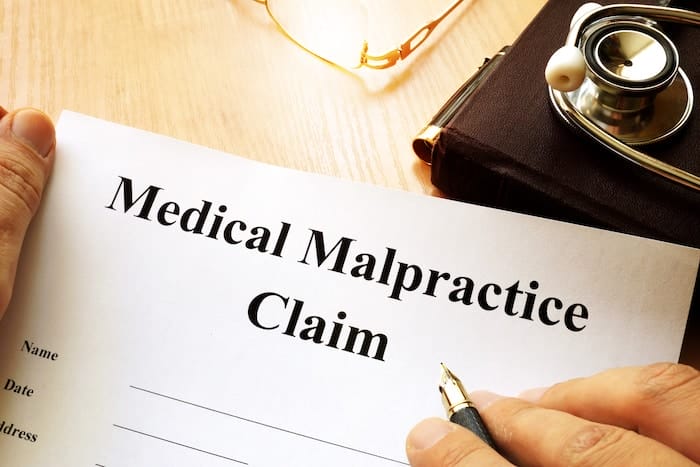Negligence, intentional harm, or failure to act responsibly in the performance of healthcare duty constitute medical malpractice. In other words, medical practice occurs when a doctor, nurse, or healthcare professional fails to competently perform his or her duties to a patient. This also includes intentional harm that a healthcare professional inflicted on unsuspecting patients.
The victim could be anyone who is seeking medical treatment in a hospital, someone who was admitted for medical surgery, or an elderly person in a nursing home or any long-term residential care facility. If you’re suspecting medical malpractice, here are the steps you can take:
- Seek Another Doctor’s Help
Once you’re suspecting medical malpractice, it is prudent to seek a second opinion from another doctor. You can then try asking the second doctor about other forms of procedures and treatment for your condition, and whether or not the procedures done by your previous doctor are not out of the ordinary.
If you have a loved one who is in a nursing home or long-term care facility and you’re suspecting negligence or medical malpractice going on, it may be best to pull them out from the facility and transfer them to another. Then, observe your loved one’s condition and ask healthcare staff from the new facility to know if the conditions and care from the previous facility are not suspicious or out of the ordinary.
- Consult A Medical Malpractice Lawyer
Aside from merely seeking a second opinion, it’s also prudent to seek legal advice about your suspicions. In this way, you’ll determine your legal options and the best course of action. You can consult firms like the Jacob Fuchsberg Law Firm, which specializes in medical malpractice lawsuits.
Medical malpractice lawyers are highly knowledgeable about cases of nursing home abuse, negligence, medication error, incorrect surgery, and other forms of medical malpractice. The medical malpractice attorney will identify and analyze if there’s a probable cause to commence a medical malpractice suit, and whether or not the evidence is enough to charge the healthcare professional.

- Request And Keep Copies Of Medical Records
Medical records contain information such as medical history, medications prescribed, and diagnostic procedures performed on the patient. This plays a vital role in establishing a medical malpractice case because this forms part of crucial evidence.
As much as possible, ask for medical records early on. It is also best to keep a copy of your doctor’s prescription, laboratory results, and even receipts of medicines and hospital bills. Suspected healthcare providers may attempt to eliminate or change medical records to avoid facing the legal consequences of their actions.
For instance, a caregiver who is involved in nursing home abuse may alter nurse’s notes and medical records that could prove the allegations of malpractice and abuse. Hence, it’s best to keep whatever medical records and copies of receipts you have, in case discrepancies are made.
- Keep A Diary
If you or a loved one is suspected to be a victim of medical negligence or medical malpractice, it would help writing down notes. At first, a medical malpractice case might still be contemplated and you might be unsure whether you have a strong case or not.
Keeping a daily journal that contains everything the healthcare providers do can be substantial evidence that would help establish a strong case. The following details might be helpful:
- Complete names of the healthcare professionals and their designation.
- Date and time of the consultation, medication, or procedure done.
- The type of medical procedure or treatment performed.
- Personal condition, vitals, signs, and symptoms of the patient before and after the medical treatment or procedure.
- Seek Help From Third Parties
Because of the COVID-19 pandemic, families are restricted from visiting elderly loved ones in long-term care facilities. A higher incident rate of abuse has been reported in these facilities, which is thought to be caused by healthcare worker burnout, lack of manpower, and unsupervised and unchecked facilities.
While it may be instinct to report a negligent nurse or healthcare worker to his or her supervisor, that course of action may not be the best for your situation. Supervisors and owners of healthcare facilities also have a tendency to cover up issues and allegations of medical malpractice in their establishment. So, it’s best to consult a medical malpractice lawyer immediately so you will be assisted by the proper agencies who can handle the complaint and conduct investigations without bias.
Conclusion
If you suspect medical malpractice, make sure to consult trusted third parties to help you with your complaint and eventually establish your case. You can seek a second medical opinion and consult a lawyer to know your rights and the proper remedies you can take. Find a medical malpractice lawyer who can help assess your situation and determine your legal options. And if possible, keep a daily journal and gather as many records, prescriptions, and medical bills as you can find.
Throughout the year, our writers feature fresh, in-depth, and relevant information for our audience of 40,000+ healthcare leaders and professionals. As a healthcare business publication, we cover and cherish our relationship with the entire health care industry including administrators, nurses, physicians, physical therapists, pharmacists, and more. We cover a broad spectrum from hospitals to medical offices to outpatient services to eye surgery centers to university settings. We focus on rehabilitation, nursing homes, home care, hospice as well as men’s health, women’s heath, and pediatrics.








